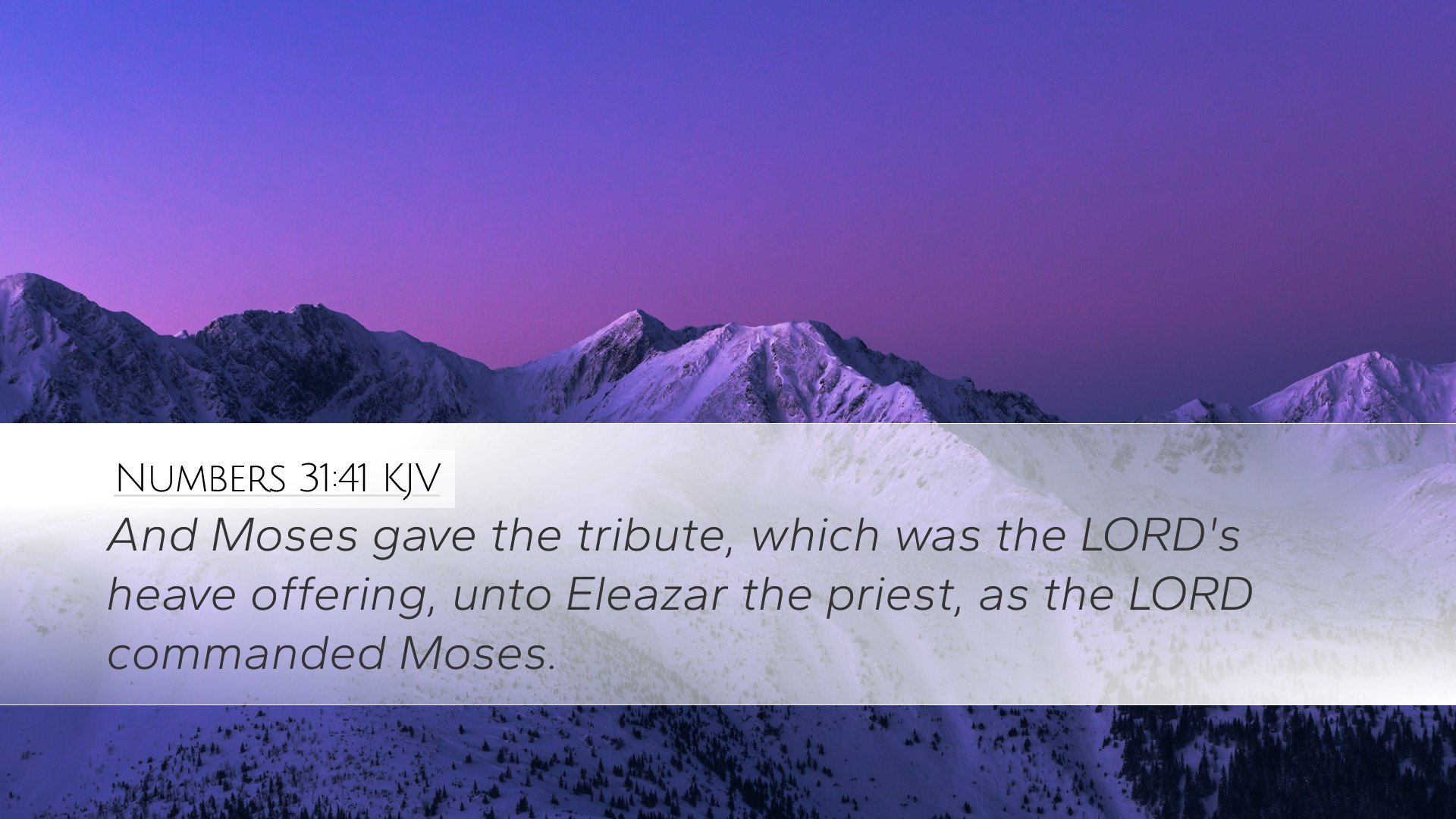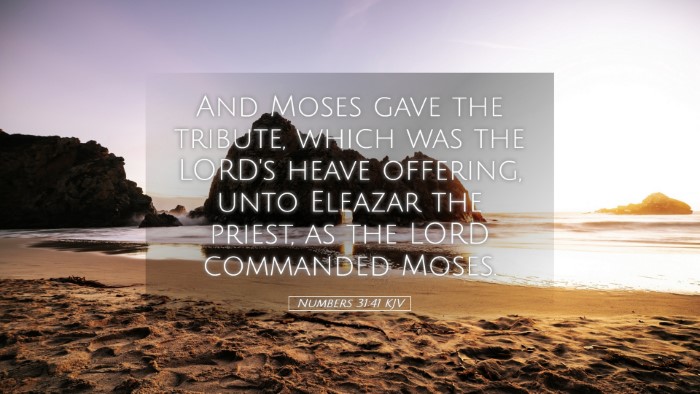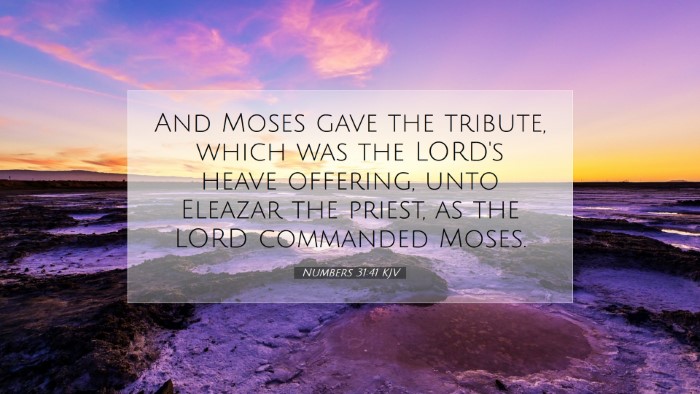Commentary on Numbers 31:41
Verse Overview: Numbers 31:41 states, “And Moses gave the tribute, which was the Lord's heave offering, unto Eleazar the priest, as the Lord commanded Moses.” This verse reflects a significant moment in the narrative of the Israelite’s journey and their engagement in warfare, emphasizing the Divine order and the importance of systematic offerings dedicated to God.
Contextual Background
The Book of Numbers presents a detailed account of the Israelite’s wanderings in the wilderness. Chapter 31 describes the Israelites' military campaign against the Midianites, which was commanded by God. The aftermath involves the division of spoils, where a portion is specifically reserved as a heave offering to the Lord. This offering signifies a commitment to God’s authority and acknowledgment of His roles in their victories and fortunes.
Observations from Commentaries
Matthew Henry’s Commentary
Matthew Henry sheds light on the theological implications of this verse, focusing on the heave offering. He articulates that this was not merely a tax or a tribute but an acknowledgment of God's sovereignty over victories. His commentary emphasizes that any successes achieved, even in warfare, must be attributed to God's providence. The act of giving a tribute is an act of worship, recognizing that all spoils come from God and should be returned to Him in gratitude.
Albert Barnes' Notes
Albert Barnes delves deeper into the ritual significance of the heave offering. He notes that this practice was not isolated to this event but was a recurring theme throughout the Law. Barnes articulates that the heave offering serves as a symbol of dedication. It is a physical representation of the people’s thankfulness towards God and their commitment to His service. It highlights the principle that regardless of personal gain, believers must always dedicate a portion back to God, making it a corporate act celebrated within the community.
Adam Clarke's Commentary
Adam Clarke provides insights on the priestly duties related to this commandment. He emphasizes the role of Eleazar the priest, appointed by Moses, as a mediator between the people and God. Clarke points out that it is crucial for leaders to follow God’s commands when distributing the spoils and offerings, as there is an expectation of accountability in spiritual matters. This act shows the importance of the clergy in ensuring that the people uphold God’s commandments and remain faithful in their worship practices.
Theological Applications
- Divine Order and Authority: The instruction to give a tribute unto the Lord reveals the necessity of adhering to God’s commands in every aspect of life, including warfare and material wealth. This reflects a deep respect for divine authority in all matters.
- Worship as a Response: The heave offering signifies that worship extends beyond verbal praise; it is also an action involving resources. Acknowledging God’s hand in one’s successes and responding appropriately is foundational in a believer’s life.
- Community and Accountability: The distribution of the spoils underlines the collective responsibility of the community to God. It places a responsibility on leaders (like Moses and Eleazar) to guide and set an example in worship and obedience.
Practical Reflections for Modern Believers
In light of Numbers 31:41, pastors and theologians can encourage their congregations to reflect upon the importance of giving back to God from what they have received. This can manifest in numerous forms, including financial support to the church, service in the community, and sharing one’s blessings with others in need. The offerings are a constant reminder that everything belongs to God and that believers are caretakers of His resources.
Believers today can learn the importance of dedicated service and how worship should penetrate all aspects of life. The strong call to accountability and proportionate giving as we witness in this passage resonates through time, encouraging sincere hearts in modern congregations to cherish and practice a life of thanksgiving and stewardship.
Conclusion
Numbers 31:41 provides a profound understanding of the spiritual and communal aspects of giving and worship. Through the insights from Matthew Henry, Albert Barnes, and Adam Clarke, this passage challenges us to engage actively with God’s commands, express gratitude through tangible means, and foster a collective approach to stewardship in our faith communities.


